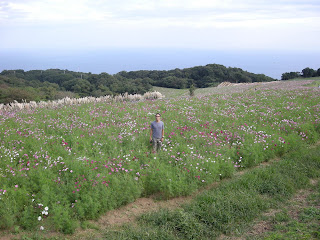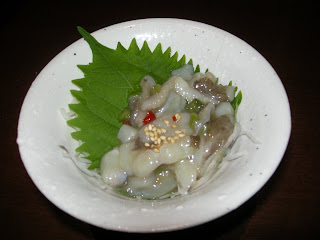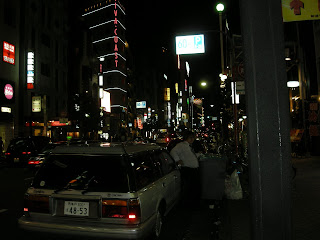The English word for
kara is empty, and for
oke its orchestra, but there must be some duality that exists in the definition, for there is something much deeper to be discovered about its meaning. There is serious study that needs to be done here. Its my opinion that a post-doctoral psychology or sociology graduate student should highly consider coming to small towns like mine, and conduct empirical research to analyze why karaoke is so prevalent. The following is my attempt to characterize and relate this intriguing Japanese obsession.
Here I will attempt to summarize the rich cultural history of a civilization that dates back to an epoch coinciding with classical antiquity itself. I will be succinct and brief, using a mere paragraph, partly because I am lazy, and I do not feel as though I should conduct serious scholarly research on the matter; I also feel since my acquired knowledge thus far in life does not happen to possess an impressive command of the topic at hand, the information I will provide may well end up as contradictory, or self-debasing. If I limit myself to a few sentences, I think both enthusiasts and dilettantes of Japanese culture and history would be satisfied.
To put it concisely, Japan has been a country well known for its discipline and its propriety, and they have extended this austere livelihood for thousands of years. Only recently can their entry into Western civilization be recorded, after the Meiji restoration, and after the arrival of a certain influential American general by the name of Matthew Perry. After Perry so politely helped usher Japan into a new era of openness and economic interdependence with the rest of the modern world, and after a few briefs forays into the balance-of-power political scene that had occupied most of Europe since the Middle Ages, Japan is considered today as having emerged as one of the world powers.
In order to better express my interest in the matter, I will relate a past experience. On a particularly uneventful Saturday afternoon, I decided to take a nap on my couch. I don’t remember any dreams in particular, but near the end of my somnambulant state, I do remember hearing ghastly moans of bitterness and torment, something that sounded like the cries of those betrayed sailors that perished at the hands of the Scylla, something Odysseus himself said he would remember has one of the most wretched things he had ever known in his life. By the time I was completely awake, I realized that this awful music was not from my dream, but from the Karaoke bar next to my apartment. I thought about lying there for a bit longer, hoping to be granted a reprieve from full consciousnesses, but this simply was not possible. The man with the microphone was singing something dreadful, something that would be described as standing in complete and utter contrast to the word euphonious. Not only was the melody terribly bland and of banal origins, but the gentleman insisted on applying his own idiosyncrasy, a jarring and sadistically violent tremolo at the end of every verse of the song, which left my bones feeling as though they had been cut and bruised by every trough and crest of the dissonant sound waves he projected through the speakers. Perhaps I am too harsh, but I do know bad karaoke from awful karaoke. That lazy Saturday afternoon, I experienced yet another tier of karaoke, a phrase which I am currently in the process of coining, so please wait patiently for me to play around with the words, and see which combination will capture it best.
Besides this encounter, I have noticed that there are so many hole-in-the wall karaoke places in my town, one only need to wander down a quiet street during odd hours of the night, and you can faintly hear the lonely calls of a hundred or so wailing Japanese men and women from behind the walls and closed doors of a random bar or restaurant. It makes me wonder why this is the chosen method, along with the chronic consumption of large amounts of alcohol, that seems to be for the sake of having an emotional or spiritual release. So much propriety and modesty surely suppresses the soul in one way or another, and as hideous as it may end up coming out, perhaps this is the Japanese way of evening out the humors of the body, allowing the soul to stretch its arms and legs, only to be cramped again into a body that recognizes that only hard-work and discipline will ultimately improve the society. Be careful with these last words, for I have heard them used in much more foreboding contexts. Interpret them however you may wish, but I only use them here to ascribe a condition to what few people I hear—although I do hear them— howling melancholy songs into the dark night.
Omura-sensei (the rice field owner) trying his hand at a rendition of
haru no hana (flowers of spring).

As an American, I recognize that we have several methods of releasing ourselves from rigors of life, some of which are healthy, and others of which are dangerous addictions. The Japanese karaoke experience is both haunting and venerable, and I hope that before I depart, I can acquire an understanding that explains this strange affinity for what would be considered by most classical music experts as melodic blasphemy. I hope to bring this back with me to America, and perhaps offer whomever I may meet in the future a chance to see the Japanese preferred method of taking a load off.






























